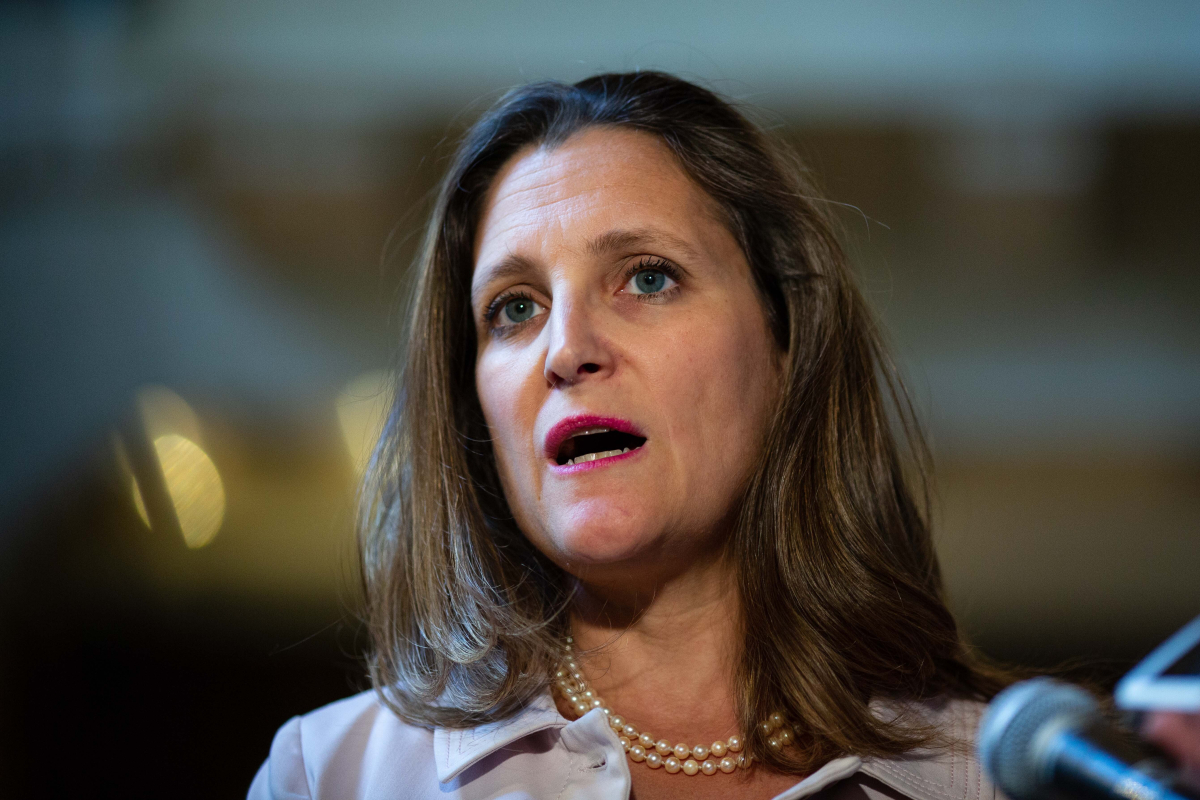Support strong Canadian climate journalism for 2025
Corporate tax breaks are the future of Canadian climate policy, according to the latest federal budget, which commits $80 billion over the next decade — of which $56 billion is new money — to subsidies for clean investments.
Investments in clean electricity, clean technology, clean manufacturing, hydrogen and carbon capture technologies will all soon be eligible for refundable tax credits of 15 to 40 per cent. The budget also puts more faith in the market to determine climate priorities, including a commitment to shift responsibility for the $15-billion Canada Growth Fund to a “professional, independent investment team.”
In announcing these measures, a senior government official said that by emphasizing tax breaks over public spending, “decision-making remains in the market, where it should be, because that’s where the expertise is.”
That’s a concerning abdication of government leadership at a pivotal moment for climate action.
As the latest IPCC report reminds us, there is “a rapidly closing window of opportunity to secure a livable and sustainable future for all.” Now, more than ever, we need bold public leadership to rapidly decarbonize the Canadian economy.
And while the private sector certainly has a role to play, we should not be leaving vital investments up to chance.
Take the electricity grid. As the Canadian economy electrifies over the coming decades, we will need to double clean electricity generation and triple electricity transmission capacity. The budget correctly notes that Canada’s “economic prosperity depends on significant investments today … [in a] national electrical grid that connects Canadians from coast-to-coast-to-coast,” which, according to research from the David Suzuki Foundation, will cost in the ballpark of $15 billion to $20 billion per year.
Yet, the government’s strategy for securing this vital investment amounts to offering a 15 per cent discount on new electricity projects and hoping for the best.
While this government has always used corporate subsidies to varying degrees, Budget 2023 marks a definitive shift in this direction. Compared to the $56 billion in new corporate subsidies, this budget only includes about $4 billion in new direct public spending on climate action.
To be fair, when you add up all the backloaded spending from previous budgets, we estimate the federal government will spend upwards of $14 billion directly on climate action in 2023-24. It’s a far cry from the two per cent of GDP — closer to $50 billion per year — we ought to be spending, but it still reflects a government with its hand on the tiller.
Moving forward, however, the government’s long-term strategy appears to be a reliance on carbon pricing and investment tax credits to drive the clean economy, with only a limited role for public financing and what one official called “bespoke” public investments in select projects. Public co-ordination is taking a back seat.
And once this previously announced spending winds down in the next few years, corporate Canada will be expected to take the wheel.
This market-based approach may ultimately work for scaling up the clean economy. But even if it does, it will do little to address the country’s largest source of greenhouse gas emissions: oil and gas production. The budget makes scant mention of the sector and, in fact, includes new incentives for blue hydrogen, carbon capture and other technologies that will encourage further oil and gas extraction.
So while $80 billion is a significant and welcome commitment to climate action, there are some serious caveats. Unless and until we get a stronger regulatory approach to phasing out fossil fuels, these kinds of incentives will, at best, only get us halfway there.
Ultimately, to achieve a net-zero economy with the urgency the climate crisis demands, we need a government that is not only willing to spend but also to lead.
Hadrian Mertins-Kirkwood is a senior researcher with the Canadian Centre for Policy Alternatives.







Comments
Unnamed senior government official: “decision-making remains in the market, where it should be, because that’s where the expertise is”
Hopelessly disingenuous. The market has been tilted in favor of fossil fuels for decades.
The list of fossil subsidies in Canada runs decades long and billions of dollars deep. We need a level playing field.
The fossil-fuel industry is profitable only because industry-captured governments allow it to externalize most of its environmental, climate, and health costs. A huge invisible subsidy.
The Liberals continue to funnel billions of public dollars to the massively profitable, largely foreign-owned O&G industry.
"Canada leads G20 in financing fossil fuels, lags in renewables funding, report says" (CP, 2021)
In 2022 the five largest western oil and gas companies made $200bn in profits. A huge financial and power imbalance.
The global industry's profits in 2022 reached c $4 trillion US. More than the GDP of all but 4 nations.
In 2022 the five largest western oil and gas companies made $US200bn in profits. More than the GDP of 146 nations.
Shell raked in $US39.9bn in profits, the highest in its 115-year history. More than the GDP of 105 nations.
For decades, the fossil-fuel industry has obstructed climate action. Fossil-fuel interests remain the main obstructionists to the energy transition. Not one big oil company has bet big on renewables.No oil company seeks to sideline its main business.
Most oil majors are irrevocably opposed to an energy transition that threatens to impair their profits, strand their assets, and ultimately put them out of business. They have every interest in slowing the transition down. "Predatory delay." They would be happy to postpone the shift forever.
Carbon Tracker 2019: "Every oil major is betting heavily against a 1.5 degree C world and investing in projects that are contrary to the Paris goals."
"Every year, the world's five largest publicly owned oil and gas companies spend approximately $200 million on lobbying designed to control, delay or block binding climate-motivated policy."
"Oil And Gas Giants Spend Millions Lobbying To Block Climate Change Policies" (Forbes, 2019)
Guess what? We get the technology, energy system, emissions trajectory, and climate outcome we invest in.
Thanks for this analysis. Unless we take to the streets in larger numbers, we can expect the continued slide past tipping points and planetary boundaries as we try to concurrently get rich off the green economy.
Flood your MPs' offices with calls, e-mails, faxes, letters demanding the specifics of what's needed.
The commenters above have all outlined excellent suggestions.
“decision-making remains in the market, where it should be, because that’s where the expertise is.”
Yeah, expertise in grabbing government subsidies. Not expertise in saving the climate. They're the ones that are crashing it in the first place, WTF are we leaving it up to them for?!
If the government of Canada doesn't have relevant expertise (because pointy-haired bosses bought into outsourcing mantras and got rid of it), maybe it should be building it up again.
It's sad that the 2030 federal budget is not even taking the meager step of eliminating subsidies from the oil & gas industry. Not exactly the Good War for which Seth Klein advocates.
I have yet to see a plan for an east-west high-voltage DC line that will connect those that produce ‘green’ electrical energy with those that need it. (Windy places do not have wind all the time, but there is always wind somewhere.) just like the Transcontinental Railroad and the TransCanada Highway, this needs to be a federal government project.